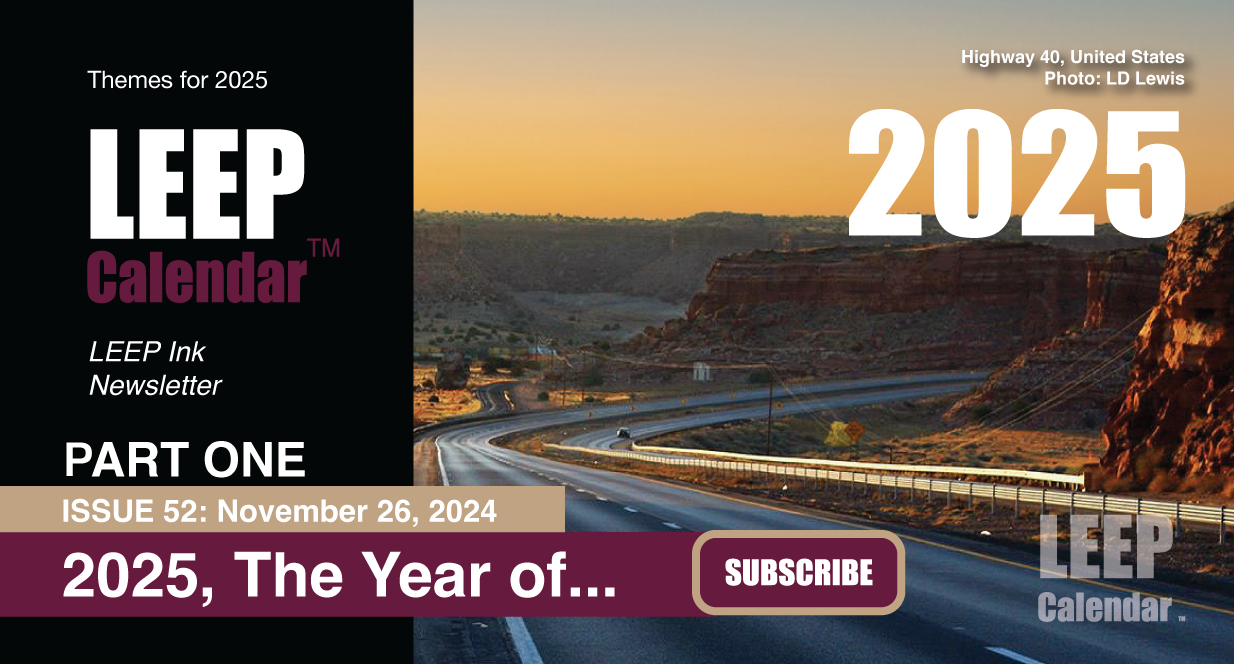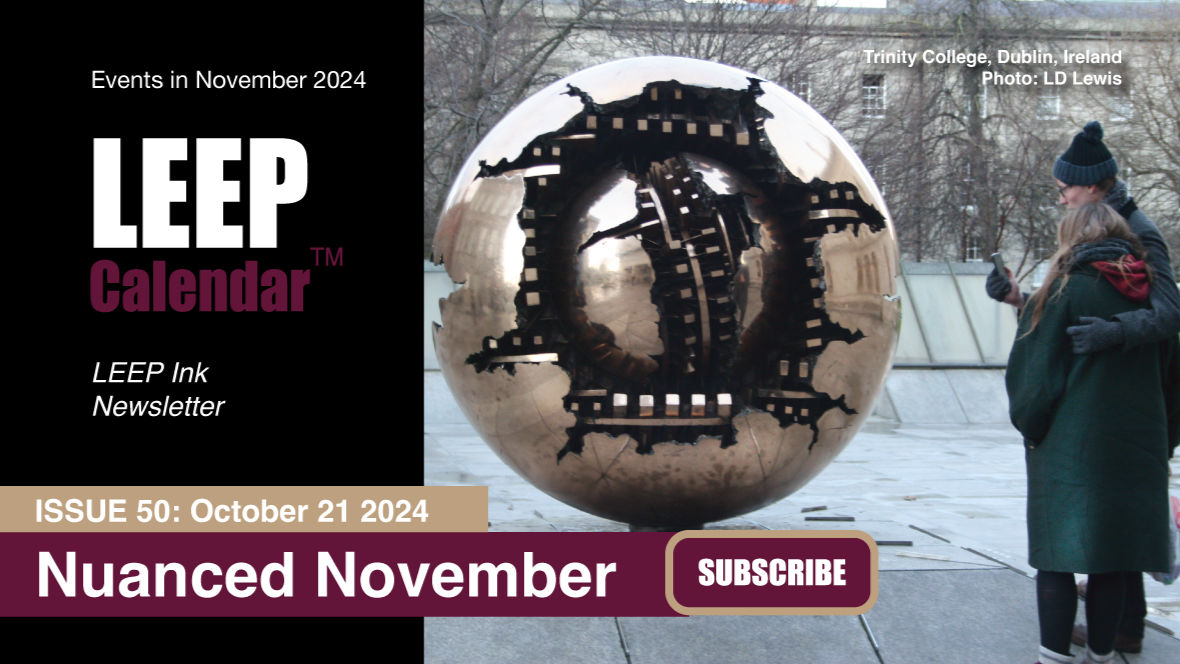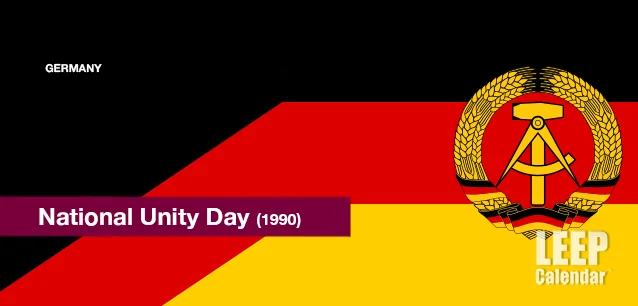 AD
AD
Today is: December 03
Scroll to explore events active on this date.
LEEP INK FEATURES

2025 is the Year of...
21 Themes and 'Year of' Events for 2025 PART ONE, THE FIRST 12 Every year, various organizations announce the theme for the year. These themes can focus on causes, such as aesthetics and color tre...

Nuanced November 2024
November is the start of the holiday season in many parts of the world. It is a time for family, football, food, shopping and decorating, particularly in the Christian and Jewish world, leading to Christmas and...

December's Gift
Events in December 2024. Well, we made it to December. December is the holiday season, particularly in Western nations, where Christianity and Judaism are the faiths most common in the nation's past. ...
About National Unity Day in Germany
Civil Rights , European Countries
Ends: Oct 03, 2024
DESCRIPTION:
EAST REJOINS WEST:
UNITY DAY IN GERMANY
Unity Day (or Tag der Deutschen Einheit) is a momentous occasion in Germany, celebrated annually on October 3rd. The day marks the reunification of East and West Germany in 1990, a historic event that followed the fall of the Berlin Wall in 1989. This significant milestone brought an end to nearly four decades of division between the two German states, symbolizing the triumph of democracy and the dawn of a new era in German history.
Unity Day is not just a day of celebration, but also a day of profound reflection. It commemorates the peaceful reunification of Germany after the Cold War, a testament to the successful efforts to unite a nation that had been politically, economically, and socially divided since the end of World War II. It serves as a powerful reminder of the pivotal role of freedom, democracy, and unity in shaping Germany's future.
Official ceremonies, public celebrations, and cultural events across Germany mark the day. The main national celebration, held in a different city each year, features speeches by political leaders, concerts, and fireworks. It is also a day for citizens to reflect on the values of democracy and the progress made in overcoming the legacies of division.
HISTORICAL CONTEXT ON CURRENT AFFAIRS
The history of German reunification continues to shape the country’s politics, society, and identity. The division of Germany after World War II into the capitalist West (Federal Republic of Germany) and the communist East (German Democratic Republic) created two distinct societies with different political systems, economies, and cultures. The fall of the Berlin Wall on November 9, 1989, became the pivotal moment that led to the reunification process, formally completed on October 3, 1990.
The reunification of Germany was challenging. The economic disparities between the East and West, known as the "Mauer im Kopf" (wall in the mind), persisted long after the physical wall came down. While significant progress has been made in closing these gaps, the lingering effects of division are still evident in some aspects of German life. Economic and social differences between the former East and West continue to influence political dynamics, voter behavior, and discussions around national identity.
In current affairs, the legacy of reunification is involved in debates over regional disparities, social cohesion, and the integration of immigrants. Reunification's experiences have also informed Germany’s approach to European integration and its role in international diplomacy, particularly in advocating for peace and unity in a divided Europe.
Unity Day is a poignant reminder of Germany's journey from division to reunification. It underscores the ongoing efforts to build a united and inclusive society, emphasizing the importance of overcoming historical divides to forge a common national identity and contribute positively to global peace and stability.
VIDEOS
SUPPORTING DOCUMENTS
Currently, this event does not have supporting documents.
ADDITIONAL IMAGES
Currently, this event does not have supporting images.
Where would you like to go now?
 AD
AD


/footer-logo.svg)
